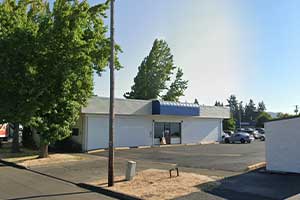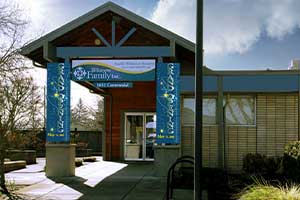Skip To Rehab Listing
Drug and Alcohol Treatment Service Settings and Methods
A number of addictive substances are easily available within the Harrisburg region, including: marijuana, alcohol, cocaine, and meth.
The reasons that people begin abusing addictive drugs differs. Often, what those who become dependent on alcohol and drugs have in common is an inability to overcome their dependence upon these addictive substances without the help of a professional.
For these individuals, Harrisburg provides a number of various rehabs so clients can search out one in a convenient location such as: detox centers, inpatient addiction treatment facilities, outpatient individual counseling, short term drug and alcohol rehab facilities, long term drug and alcohol rehab programs.
These programs use a range of methods, ranging from traditional methods to newer techniques, in order to offer clients with an effective evidence-based path to lasting recovery. These methods can include: group therapy, contingency management/motivational incentive, vocational rehabilitation services, individual psychotherapy, brief intervention approach, trauma-related counseling.
Special Programs for Addiction Treatment
As drug and alcohol addiction impacts each person in a different way, nearby rehabs offer special resources such as persons with serious mental illness, treatment for spanish-speaking clients, legal advocacy, co-occurring mental and substance abuse disorders, clients referred from the court/judicial system, persons with post-traumatic stress disorder to help match a client's treatment to their specific needs.
People having to deal with alcohol and drug use can receive instruction in picking the appropriate program for their needs by getting in touch with any of the area's treatment centers.
Drug Rehab Center Payment Options
Funding should not be a barrier to recovery for people struggling with addiction. That is the reason nearby rehabs offer several payment options, like private insurance, cash or self-payment, payment assistance, sliding fee scale, access to recovery (atr) voucher, state education funds, to assist clients' individual financial situation.
People who are looking for alcohol and drug rehabilitation can find a facility, rehab, approach, and payment option within the Harrisburg region that will help them to beat their alcohol and drug abuse and go back to the life they want to lead.
Commonly Asked Questions about Addiction and Treatment
What are triggers for a drug abuser?
"Triggers are specific events, emotions, situations, or people that can prompt someone with a history of substance abuse to feel a strong urge or craving to use drugs or alcohol again. These triggers can be external or internal, and they can vary greatly between individuals based on their unique experiences, environment, and psychological makeup. Recognizing and managing triggers is a critical part of the recovery process. Here are some common types of triggers:
Emotional Triggers: Strong emotions, both positive and negative, can act as triggers. Stress, anger, sadness, loneliness, anxiety, and even joy or excitement can prompt a desire to use substances as a way to cope or to enhance the emotional state.
Environmental Triggers: Certain locations, sounds, smells, or time of day associated with past substance use can elicit cravings. This could be places where the person used to use or buy drugs, people they used with, or even certain songs or smells linked to their past use.
Social Triggers: Social situations or specific individuals can serve as triggers, especially if they involve substance use or if the people involved were part of the person's drug-using past.
Physical Triggers: Physical discomfort, illness, or fatigue can potentially lead to cravings, as can the sight of drug paraphernalia or substances themselves.
Psychological Triggers: Thoughts or memories associated with drug use, low self-esteem, boredom, or mental health conditions such as depression or anxiety can also act as triggers.
Celebrations or Special Occasions: Birthdays, holidays, anniversaries, or other celebrations can be triggers, particularly if substance use was a past part of those events.
How does a person become addicted to drugs and alcohol?
Addiction to drugs and alcohol is a complex process involving a combination of genetic, environmental, psychological, and social factors. While not everyone who uses drugs or alcohol will become addicted, certain factors can increase an individual's vulnerability to addiction. Some key factors contributing to addiction include:
- Genetic predisposition: Genetics play a significant role in addiction, accounting for an estimated 40-60% of an individual's vulnerability. People with a family history of addiction may be more susceptible to developing a substance use disorder.
- Environmental influences: A person's environment can significantly impact their likelihood of developing an addiction. Factors such as exposure to drugs or alcohol, peer pressure, low socioeconomic status, and lack of parental supervision can contribute to substance use and potential addiction.
- Early initiation: Research indicates that individuals who begin using drugs or alcohol at an early age are at a higher risk of developing addiction later in life. Early exposure to substances can disrupt normal brain development, making it more challenging to resist addictive behaviors.
- Psychological factors: Mental health disorders, such as depression, anxiety, or trauma-related disorders, can increase the risk of addiction. Individuals may turn to drugs or alcohol as a coping mechanism for managing emotional distress, which can lead to dependence and addiction.
- Social factors: Social isolation, lack of support networks, or unhealthy relationships can contribute to addiction. Individuals may use drugs or alcohol to fill a void or establish connections with others, increasing their risk of developing a substance use disorder.
- Chronic use: Repeated exposure to drugs or alcohol can lead to physiological changes in the brain's reward and pleasure centers. Over time, these changes can result in the development of tolerance, dependence, and ultimately addiction.
- Route of administration: The method by which a substance is consumed can impact the likelihood of addiction. Faster-acting routes of administration, such as injecting, smoking, or snorting, can lead to a more rapid onset of pleasurable effects, increasing the risk of addiction.
If a drug abuser loved their family wouldn't they stop?
Substance Use Disorder, commonly known as addiction, is a complex disease that affects the brain and behavior. It's important to understand that addiction is not a matter of willpower or moral strength, and it doesn't reflect an individual's love or lack of love for their family. Here's why a person struggling with addiction might not simply stop, even if they deeply care for their family:
Altered Brain Function: Drugs can alter the brain's structure and function, especially in areas related to reward, judgment, decision-making, learning, and memory. This can lead to intense cravings and a compulsive desire to use drugs, despite knowing the harm they're causing.
Physical Dependence: Regular use of certain drugs can lead to physical dependence, where the body needs the drug to function normally. Stopping the drug can cause uncomfortable or even dangerous withdrawal symptoms, which can make quitting extremely difficult without medical help.
Psychological Dependence: Some individuals use drugs to cope with stress, trauma, or mental health disorders. These individuals may feel they cannot function or feel normal without the substance, and overcoming this psychological dependence can be challenging.
Fear of Withdrawal: Fear of the withdrawal process, which can be physically and emotionally painful, can deter individuals from quitting, even if they want to stop for their loved ones.
Denial: Many people struggling with addiction are in denial about the extent of their problem. They may not realize or admit how much their substance use is hurting themselves and their family.
Loving someone, even deeply, does not automatically grant the ability to overcome addiction. Recovery often requires professional help and involves more than just the decision to stop using drugs. It includes learning new coping skills, addressing underlying issues that may contribute to the addiction, and receiving ongoing support. With proper treatment and support, many people are able to recover from addiction and rebuild their relationships with their loved ones.













